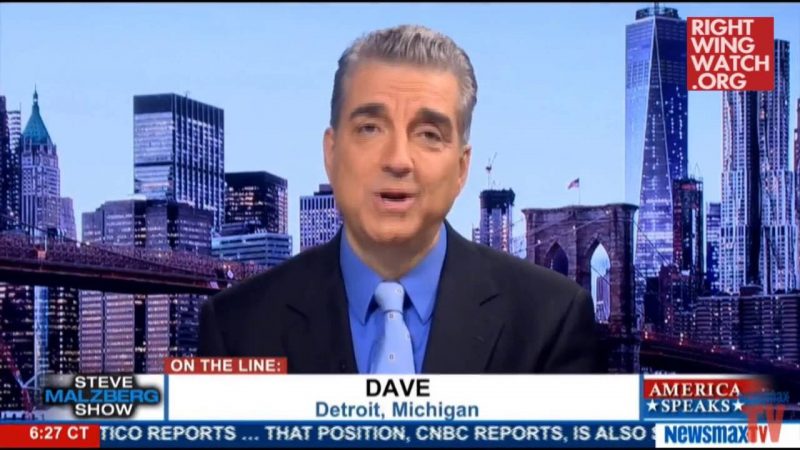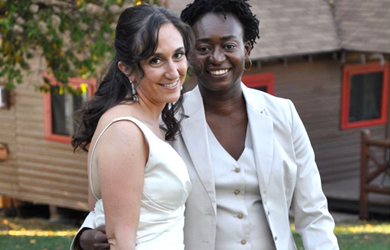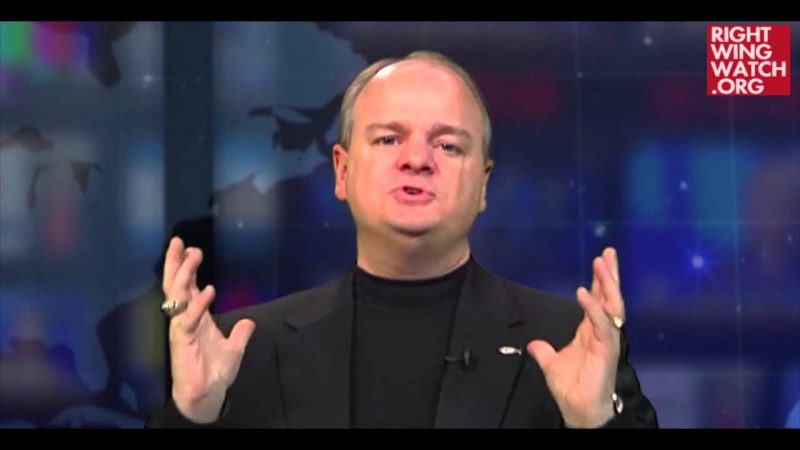It looks like Conservapedia, the conservative alternative to Wikipedia founded by Andy Schlafly, son of the Eagle Forum’s Phyllis Schlafly, has undertaken a new project – making a more conservative Bible:
Liberal bias has become the single biggest distortion in modern Bible translations. There are three sources of errors in conveying biblical meaning:
- lack of precision in the original language, such as terms underdeveloped to convey new concepts of Christianity
- * lack of precision in modern language
- * translation bias in converting the original language to the modern one.
Of these three sources of errors, the last introduces the largest error, and the biggest component of that error is liberal bias. Large reductions in this error can be attained simply by retranslating the KJV into modern English.
As of 2009, there is no fully conservative translation of the Bible which satisfies the following ten guidelines:
1. Framework against Liberal Bias: providing a strong framework that enables a thought-for-thought translation without corruption by liberal bias
2. Not Emasculated: avoiding unisex, “gender inclusive” language, and other modern emasculation of Christianity
3. Not Dumbed Down: not dumbing down the reading level, or diluting the intellectual force and logic of Christianity; the NIV is written at only the 7th grade level[3]
4. Utilize Powerful Conservative Terms: using powerful new conservative terms as they develop;[4] defective translations use the word “comrade” three times as often as “volunteer”; similarly, updating words which have a change in meaning, such as “word”, “peace”, and “miracle”.
5. Combat Harmful Addiction: combating addiction by using modern terms for it, such as “gamble” rather than “cast lots”;[5] using modern political terms, such as “register” rather than “enroll” for the census
6. Accept the Logic of Hell: applying logic with its full force and effect, as in not denying or downplaying the very real existence of Hell or the Devil.
7. Express Free Market Parables; explaining the numerous economic parables with their full free-market meaning
8. Exclude Later-Inserted Liberal Passages: excluding the later-inserted liberal passages that are not authentic, such as the adulteress story
9. Credit Open-Mindedness of Disciples: crediting open-mindedness, often found in youngsters like the eyewitnesses Mark and John, the authors of two of the Gospels
10. Prefer Conciseness over Liberal Wordiness: preferring conciseness to the liberal style of high word-to-substance ratio; avoid compound negatives and unnecessary ambiguities; prefer concise, consistent use of the word “Lord” rather than “Jehovah” or “Yahweh” or “Lord God.”
Thus, a project has begun among members of Conservapedia to translate the Bible in accordance with these principles.
The new Conservapedia-approved version of the Bible can be found here, but it looks like they have a long way to go as none of the Old Testament has been translated and only small portions of the New Testament have been properly updated. But from what is currently available, it looks like this is what we can expect from this endeavor:
Here is Chapter 3, verses 1-6 from the Book of Mark (New International Version)
1 Another time he went into the synagogue, and a man with a shriveled hand was there.
2 Some of them were looking for a reason to accuse Jesus, so they watched him closely to see if he would heal him on the Sabbath.
3 Jesus said to the man with the shriveled hand, “Stand up in front of everyone.”
4 Then Jesus asked them, “Which is lawful on the Sabbath: to do good or to do evil, to save life or to kill?” But they remained silent.
5 He looked around at them in anger and, deeply distressed at their stubborn hearts, said to the man, “Stretch out your hand.” He stretched it out, and his hand was completely restored.
6 Then the Pharisees went out and began to plot with the Herodians how they might kill Jesus.
Here are the same passages from the Conservapedia translation in which “Pharisees” becomes “intellectuals”
1 Jesus returned to the synagogue, and noticed man with a crippled hand.
2 The intellectuals watched Jesus to see if he might catch and accuse him of healing on the Sabbath.
3 Jesus told the man with the crippled hand, “Stand up in front of everyone.”
4 Jesus asked the intellectuals, “Which is lawful on the Sabbath: doing good or evil? Saving a life, or killing one? The intellectuals did not answer.”
5 Jesus looked at them, feeling anger and pity for the hardness of their hearts, and said to the injured man, “Open your hand.” He then opened and held out his hand, and it was as good as new.
6 The intellectuals then fled from the scene to plot with Herod’s people against Jesus, and plan how they might destroy him.








